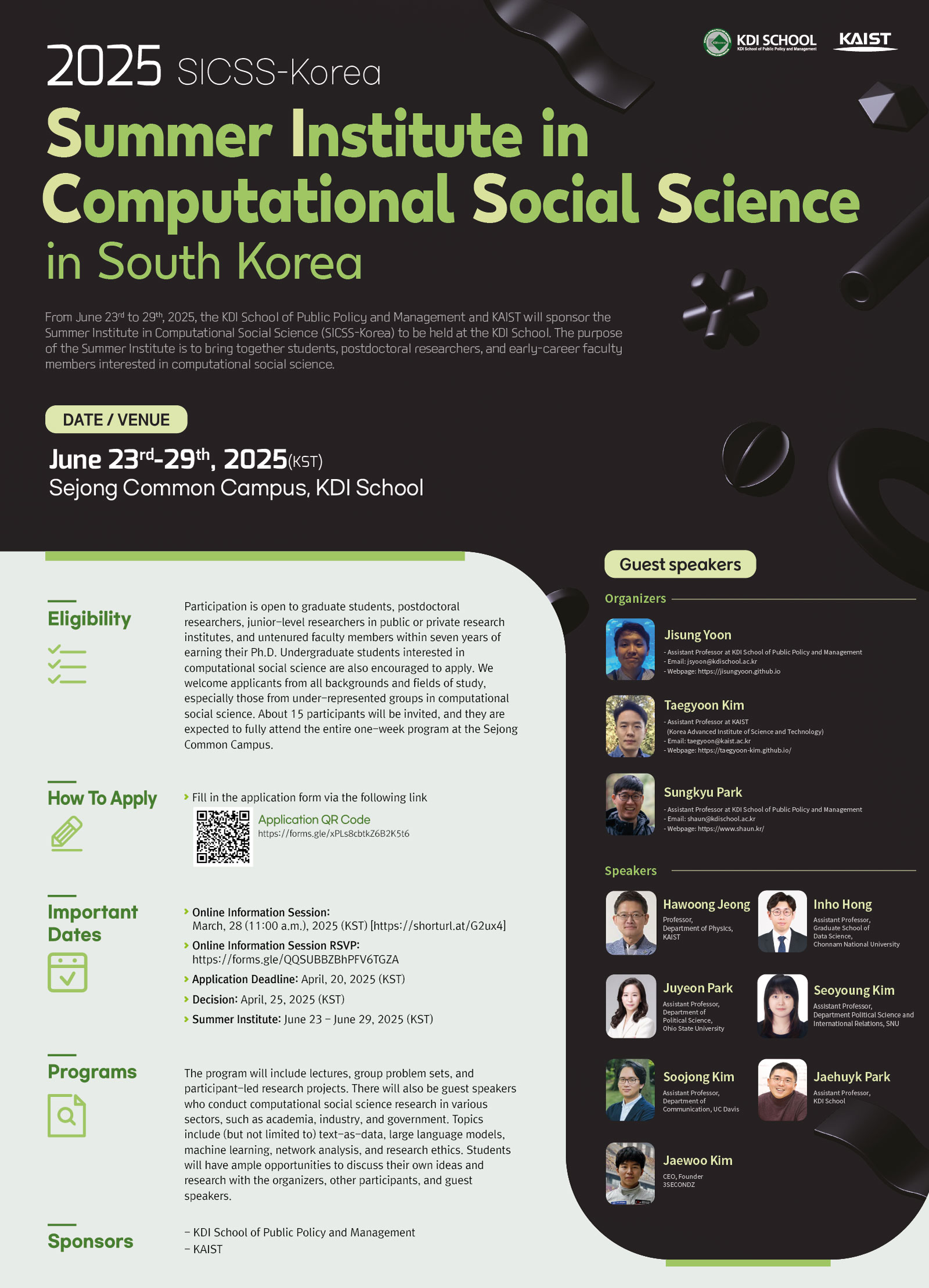Summer Institute in Computational Social Science

- Time and Date :
Jun 23 (Mon) – Jun 29 (Sun), 2025
- Venue :
KDI School
- Organizing Committee :
Jisung Yoon (KDI School), Taegyoon Kim (KAIST School of Digital Humanities and Computational Social Sciences), Sungjyu Park (KDI School)
- Participants :
A total of 20 participants, mainly consisting of undergraduate students, graduate students, and early-career researchers.
-
Program Highlight
The program consists of leactures, tutorials, and group research projects. It also includes talks by invited speakers conducting computational social science research in various sectors, including academia, industry, and government. Topics covered include, but not limited to, text-as-data analysis, large language models, machine learning, network analysis, and research ethics. Participants will have the opportunity to activelu discuss their ideas and research with organizers, other partipicants, and invited speakers.

